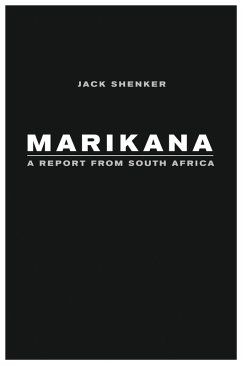On 16 August 2012, the world looked on in horror as South African police gunned down striking mine workers at Marikana, leaving thirty-four dead and many more wounded. It was a massacre that echoed apartheid-era violence at Sharpeville and Soweto, shattering the international image of South Africa as a liberated 'rainbow nation'. The bloodshed laid bare the lingering inequalities and class tensions that have endured beyond South Africa's democratic transition, and which the ruling African National Congress has done little to address.
Marikana, an ebook exclusive by award-winning Guardian journalist Jack Shenker, explores the origins of the massacre and the truth behind the establishment's attempted cover-up, which has played out against a backdrop of growing popular disillusionment with the ANC and a spike in worker militancy. Weaving together the history of international mining interests in southern Africa, the mutation of the ANC from economic radicals into free-market cheerleaders and the emergence of new forms of popular resistance, Marikana poses vital questions about the massacre's legacy both within South Africa's borders and beyond. Offering a new and invaluable insight into one of the darkest episodes in South Africa's modern history, Shenker's work could not be more timely.
Marikana, an ebook exclusive by award-winning Guardian journalist Jack Shenker, explores the origins of the massacre and the truth behind the establishment's attempted cover-up, which has played out against a backdrop of growing popular disillusionment with the ANC and a spike in worker militancy. Weaving together the history of international mining interests in southern Africa, the mutation of the ANC from economic radicals into free-market cheerleaders and the emergence of new forms of popular resistance, Marikana poses vital questions about the massacre's legacy both within South Africa's borders and beyond. Offering a new and invaluable insight into one of the darkest episodes in South Africa's modern history, Shenker's work could not be more timely.









